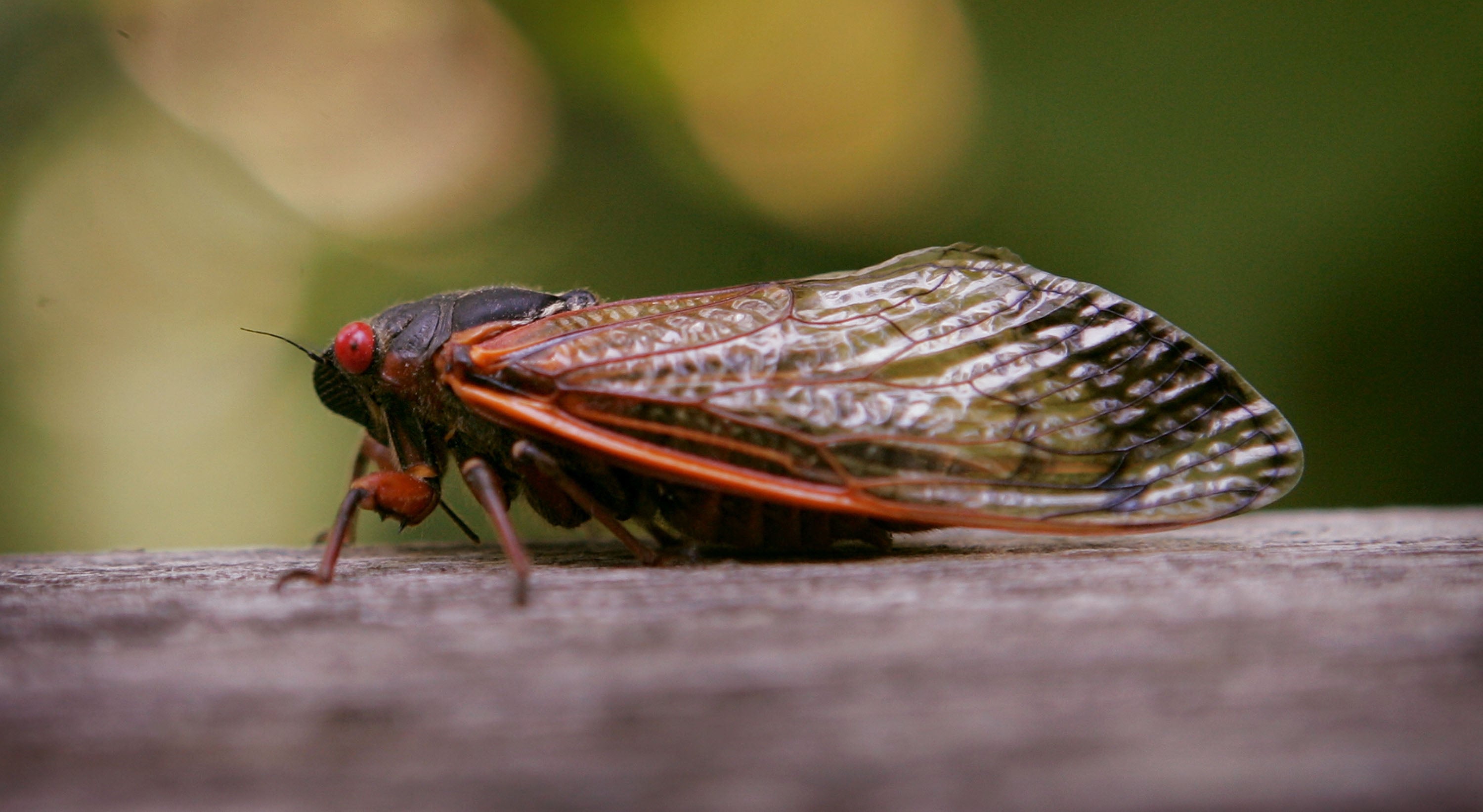Stop phoning 911 to report ear-splitting cicada noise, authorities plead
The loud sounds cicadas make after emerging from the ground is a mating call and can reach over 100 decibels

Your support helps us to tell the story
From reproductive rights to climate change to Big Tech, The Independent is on the ground when the story is developing. Whether it's investigating the financials of Elon Musk's pro-Trump PAC or producing our latest documentary, 'The A Word', which shines a light on the American women fighting for reproductive rights, we know how important it is to parse out the facts from the messaging.
At such a critical moment in US history, we need reporters on the ground. Your donation allows us to keep sending journalists to speak to both sides of the story.
The Independent is trusted by Americans across the entire political spectrum. And unlike many other quality news outlets, we choose not to lock Americans out of our reporting and analysis with paywalls. We believe quality journalism should be available to everyone, paid for by those who can afford it.
Your support makes all the difference.Some Americans are apparently so unhappy with the piercing calls of the emerging cicadas that they are calling the police on the insects.
The police have a message for those Americans: stop.
“Union County E911 is receiving multiple 911 calls for ‘alarms’ in the neighborhood. More than likely these ‘alarms’ are not alarms at all but a bug, Brood X,” the Union County Fire/Rescue said in a Facebook statement. “If you think you hear an alarm, ensure that it is an alarm and determine the location before contacting authorities.”
The insects' calls are loud and are meant to attract females.
Cicada calls can be loud – reaching as high as 120 decibels, which is the equivalent of a chainsaw – and can cause hearing loss in extreme cases.
However, the bugs are mostly benign, as they cannot sting or bite. Their extremely loud calls are meant to attract mates.
Most Americans are unfamiliar with the sound because periodical cicadas spend 13 to 17 years underground maturing before they break through the ground, generally in mid-May until they die around around June.
While many people are not thrilled at the prospect of an enormous number of insects emerging from the ground and screaming for the better part of a month, there are some who view the event as a special – and delicious – treat.
Many people around the world treat the cicadas as a culinary delicacy.
“[It's] really common around the world to eat insects seasonally, for their taste, for their nutritional importance,” Jessica Fanzo, a professor of food policy and ethics at Johns Hopkins University, told CBSN. “And even here in the United States, some Native American populations consumed cicadas in times of hardship, when their land was taken from them and they faced starvation. For some Native American populations, these foods have a historical importance for their survival. But it's all about what you're used to.”
Eating insects is common in countries like Thailand, Mexico and Kenya.
Americans and Europeans are less inclined to eat insects as they are often considered pests, though the cicadas have piqued the interest of some adventurous foodies in the West.
Chef Joseph Yoon, who runs an educational website and social media profiles under the name BrooklynBugs, has been sharing images of meals prepared using insects, including cicadas.
Ms Fanzo told The Today Show there was nothing wrong with eating cicadas, and that they were actually a good source of protein.
"It is fine to eat cicadas," she said. "They are a high protein source of food, and have a reasonable amount of minerals like iron and zinc and some vitamins."
Join our commenting forum
Join thought-provoking conversations, follow other Independent readers and see their replies
Comments